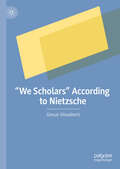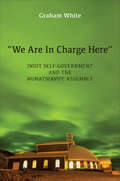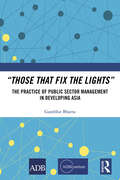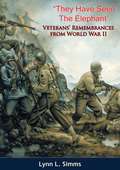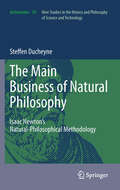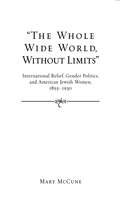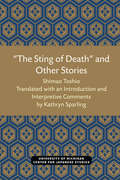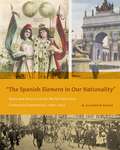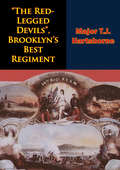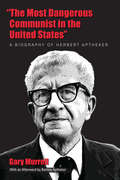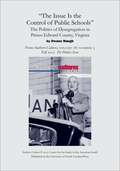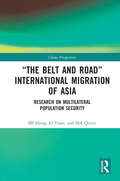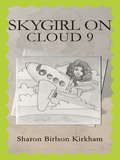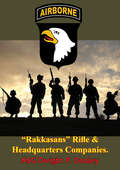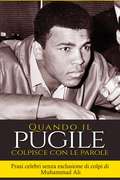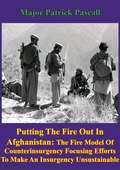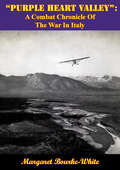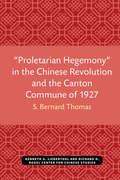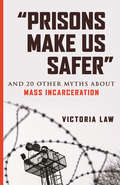- Table View
- List View
“We are Not the Enemy”: Hate Crimes Against Arabs, Muslims, and Those Perceived to be Arab or Muslim after September 11
by Human Rights WatchPublic officials tried vigorously to contain a wave of hate crimes in the United States after September 11, Human Rights Watch said in a report released today. Nevertheless, anti-Muslim hate crimes in the United States rose 1700 percent during 2001. The report documents anti-Arab and anti-Muslim violence and the local, state and federal response to it. The forty-one page report, “We Are Not the Enemy,” draws on research with police, prosecutors, community activists, and victims of hate crimes in six cities (Seattle, Washington; Dearborn, Michigan; Chicago, Illinois; Los Angeles, California; Phoenix, Arizona; and New York, New York) to review steps taken by government officials to prevent and prosecute hate crimes after the September 11 attacks in New York and Washington, D.C. The report also examines the scope and extent of these hate crimes, which included murder, assault, arson, and vandalism. “Government officials didn’t sit on their hands while Muslims and Arabs were attacked after September 11,” said Amardeep Singh, author of the report and U.S. Program researcher at Human Rights Watch. “But law enforcement and other government agencies should have been better prepared for this kind of onslaught.”
“We Scholars” According to Nietzsche
by Giosuè GhisalbertiThis book examines Nietzsche’s early writings on education, paying particular attention to his thought on scholarship and teaching. Giosuè Ghisalberti examines Nietzsche’s view of himself as a teacher in the broader context of his reflections on scholarship and philology, and puts Nietzsche’s examination into conversation with prominent themes in his later philosophy (including morality, truth, and language). The book is to be read as an assessment of our social predicament, in and out of the university. “We Scholars” According to Nietzsche develops ideas on our contemporary world most especially in institutions of higher learning and how morality is proving to be inimical to freedom.
“We Are in Charge Here”: Inuit Self-Government and the Nunatsiavut Assembly
by Graham WhitePowerful, innovative Indigenous self-governance regimes are increasingly important players in Canadian politics, but little academic work has been done on their structure, operation, and effectiveness. "We Are In Charge Here" examines the central institution of the most populous Indigenous self-governance regime in Canada, the elected Assembly of the Nunatsiavut Government. Nunatsiavut – "our beautiful land" in Inuktitut – was established in 2006 by a modern treaty between the Labrador Inuit and the Canadian state. Graham White offers a thorough observation of the Assembly, based on interviews with Assembly members and others involved in Nunatsiavut politics, observation of Assembly sessions, and a review of official documents, in order to provide a comprehensive picture of the Assembly, its members, and its operations. The book examines the Assembly’s effectiveness in performing traditional legislative functions such as representation, policy making, and accountability. It addresses key concerns including executive-legislative power relations, Inuit influence on Assembly operations, and the Assembly’s role in realizing self-government. Illuminating the intersection of Indigenous self-governance approaches and Western institutions, "We Are In Charge Here" will be of interest to political leaders, legislative officials, and academics concerned with the design and on-the-ground functioning of Indigenous self-government.
“Tired all the Time”: Persistent Fatigue and Healthcare
by Marie ThomasThis book explores the history, effects, diagnosis and treatment of chronic fatigue as well its significant links to other illnesses. Fatigue is a difficult symptom to accurately assess and quantify due to its subjective nature. Marie Thomas discusses the uncertainties and difficulties in its diagnosis as well as the broader effects of fatigue on quality of life. Fatigue is an increasingly reported problem in primary care, and one that is associated with other chronic conditions as a secondary symptom. Using several case studies, this book describes how in many cases, a patient’s primary condition can be managed; however General Practitioners are left unable to address the fatigue experienced, especially in older adults. Chapters consider the interventions that exist to manage fatigue – especially in the case of Chronic Fatigue Syndrome (CFS) – before highlighting the lack of strategies in primary care for dealing with the problem. In the final chapter Thomas discusses potential interventions and gives recommendations for future research regarding fatigue. This book will be of interest to academics and practitioners in healthcare and psychology, as well as to patient groups and those who care for individuals with fatigue.
“Those That Fix the Lights”: The Practice of Public Sector Management in Developing Asia
by Gambhir BhattaThis book looks at the state of governance in countries of Developing Asia, ie, the poorer countries in the region and those with inadequate creditworthiness and with risk of debt stress. It assesses the state of public sector management and their attempts at governance reforms in these countries. It further considers the space for these countries to initiate and sustain reforms in a few key areas of public policy, including (i) generating more resources domestically; (ii) reforming the state-owned enterprises so that primarily governments do not lose a lot of resources in the form of subsidies; (iii) strengthening local governments so that services can be provided more effectively; and (iv) strengthening the agencies of government such that public sector functions, such as service delivery, are better and more effectively delivered. The book’s main conclusion is that while countries in Developing Asia have had difficulties in instituting governance and public sector reforms, the scope for doing so has never been better.
“They Have Seen The Elephant”: Veterans’ Remembrances from World War II
by Lynn L. SimmsThese stories happened over 40 years ago, all over the world, and they are set down here so they can remind us of other times and places where Americans fought for their country. No single soldier "won the war," rather each was trained, went where he was told and did his job when needed.War became a way of life, an opportunity for undreamed-of travel, a time in which many grew up, some received equal treatment for the first time, some enjoyed working as part of a team, some felt proud, but for all it was an experience few would have wanted to miss, but none would want to repeat.
“The main Business of natural Philosophy”: Isaac Newton’s Natural-Philosophical Methodology (Archimedes #29)
by Steffen DucheyneIn this monograph, Steffen Ducheyne provides a historically detailed and systematically rich explication of Newton's methodology. Throughout the pages of this book, it will be shown that Newton developed a complex natural-philosophical methodology which encompasses procedures to minimize inductive risk during the process of theory formation and which, thereby, surpasses a standard hypothetico-deductive methodological setting. Accordingly, it will be highlighted that the so-called 'Newtonian Revolution' was not restricted to the empirical and theoretical dimensions of science, but applied equally to the methodological dimension of science. Furthermore, it will be documented that Newton's methodology was far from static and that it developed alongside with his scientific work. Attention will be paid not only to the successes of Newton's innovative methodology, but equally to its tensions and limitations. Based on a thorough study of Newton's extant manuscripts, this monograph will address and contextualize, inter alia, Newton's causal realism, his views on action at a distance and space and time, the status of efficient causation in the /Principia/, the different phases of his methodology, his treatment of force and the constituents of the physico-mathematical models in the context of Book I of the /Principia/, the analytic part of the argument for universal gravitation, the meaning and significance of his regulae philosophandi, the methodological differences between his mechanical and optical work, and, finally, the interplay between Newton's theology and his natural philosophy.
“The Whole Wide World, Without Limits”: International Relief, Gender Politics, and American Jewish Women, 1893-1930
by Mary MccuneAn analysis of gender politics in the American Jewish community during the interwar period that reveals the role of gender and class in organizational politics and the importance of Jewish women in American political and activist history.
“The Sting of Death” and Other Stories (Michigan Papers in Japanese Studies #12)
by Toshio Shimao“The Sting of Death” and Other Stories
“The Spanish Element in Our Nationality”: Spain and America at the World’s Fairs and Centennial Celebrations, 1876–1915
by M. Elizabeth Boone"The Spanish Element in Our Nationality" delves beneath the traditional "English-only" narrative of U.S. history, using Spain’s participation in a series of international exhibitions to illuminate more fully the close and contested relationship between these two countries.Written histories invariably record the Spanish financing of Columbus’s historic voyage of 1492, but few consider Spain’s continuing influence on the development of U.S. national identity. In this book, M. Elizabeth Boone investigates the reasons for this problematic memory gap by chronicling a series of Spanish displays at international fairs. Studying the exhibition of paintings, the construction of ephemeral architectural space, and other manifestations of visual culture, Boone examines how Spain sought to position itself as a contributor to U.S. national identity, and how the United States—in comparison to other nations in North and South America—subverted and ignored Spain’s messages, making it possible to marginalize and ultimately obscure Spain’s relevance to the history of the United States.Bringing attention to the rich and understudied history of Spanish artistic production in the United States, "The Spanish Element in Our Nationality" recovers the "Spanishness" of U.S. national identity and explores the means by which Americans from Santiago to San Diego used exhibitions of Spanish art and history to mold their own modern self-image.
“The Red-Legged Devils”, Brooklyn’s Best Regiment
by Major T.J. HartshorneThe Fourteenth Regiment New York State Militia of Brooklyn, New York gathered an impressive combat record during the Civil War, yet the Professional Military Education world rarely takes notice of their deeds. They were first formed on 5 July 1847 when the New York State Legislature consolidated the individual militia companies into regiments. During the Civil War the Fourteenth Regiment fought in 29 engagements and sustained over 700 casualties. Their battles include participation in both Bull Runs, Antietam, Fredericksburg, Chancellorsville, Gettysburg, Wilderness and Spotsylvania. Though noted primarily for actions in the Civil War, the Regiment also served in the Spanish American War, World Wars I and II, and Korea, though under different unit designations. The Fourteenth Regiment's past can be a road to our future. An insight to their performance under fire can provide today's students a timeless template on how to conduct combat operations.
“The Most Dangerous Communist in the United States”: A Biography of Herbert Aptheker
by Bettina Aptheker Gary MurrellWhen J. Edgar Hoover declared Herbert Aptheker “the most dangerous Communist in the United States,” the notorious FBI director misconstrued his true significance. In this first book-length biography of Aptheker (1915–2003), Gary Murrell provides a balanced yet unflinching assessment of the controversial figure who was at once a leading historian of African America, radical political activist, literary executor of W. E. B. Du Bois, and lifelong member of the American Communist Party. Although blacklisted at U.S. universities, Aptheker published dozens of books, including the groundbreaking American Negro Slave Revolts (1943) and the monumental seven-volume Documentary History of the Negro People (1951–1994). He also edited four volumes of the correspondence and unpublished writings of Du Bois, an achievement that Eric Foner, writing in the New York Times Book Review, called “a milestone in the coming of age of Afro-American history.” As Murrell shows, Aptheker the historian was inseparable from Aptheker the leading Communist Party intellectual, polemicist, and agitator. During the 1960s, his ability to rouse and inspire both black and white student radicals made him one of the few Old Leftists accepted by the New Left. Aptheker had joined the CPUSA during its heyday in the 1930s, convinced that only through the party’s leadership could fascism be defeated and true liberation be achieved: he ended his affiliation five decades later in 1991 after the collapse of socialism in the Soviet Union and Eastern Europe. In an afterword, Bettina Aptheker adds to Murrell’s narrative by illuminating her mother Fay’s vital contributions to her father’s work and by affirming the particularly devastating challenges of life in a family dedicated to radical political and social change.
“The Issue Is the Control of Public Schools”: The Politics of Desegregation in Prince Edward County, Virginia
by Dwana WaughWarren Brown recounts his hurried educational career. Unable to attend school until he was ten years old, Brown completed twelve grades in just seven years."This article appears in the Fall 2012 issue of Southern Cultures. The full issue is also available as an ebook.Southern Cultures is published quarterly (spring, summer, fall, winter) by the University of North Carolina Press. The journal is sponsored by the University of North Carolina at Chapel Hill's Center for the Study of the American South.
“The Belt and Road” International Migration of Asia: Research on Multilateral Population Security (China Perspectives)
by MI Hong LI Yuan MA QiyiniThe book studies multilateral population security issues and relevant governance strategies caused by international migration in the countries impacted by China’s Belt and Road initiative and their border areas.Buttressed by solid data mining and policy analysis, the title looks into the demographic trends of international migration in China and some Asian Belt and Road countries and stresses the urgency for more effective governance practices. Seeking to address the population security crisis triggered by the Initiative, the authors propose the idea of “multilateral population security governance”, grounded in the real-world challenges facing Belt and Road countries while also drawing on experiences of migration governance in western countries. As a new governance model, it calls for cross-border joint action and takes into consideration pertinent factors including economy, politics, culture, religion and commerce. Several case studies and comparative studies are offered in the chapters to illuminate the significance and effect of this cooperative mechanism.The book will be of interest to researchers and government officials interested in non-traditional security, international migration and formal demography as well as topics on population, resources and environment.
“Terrible Terry” The Brooklyn Terror: The Life And Battles Of Terry McGovern
by Nat FleischerVeteran and expert boxing writer Nat Fleischer recounts the career of Terrible Terry McGovern, who dominated the Bantam and Featherweight classes at the turn of the 20th Century. Still regarded as one of the most destructive and effective Bantamweights of all time, a stocky, fast body puncher who won 45 of his fights via knock-out in an age of iron men.Historian Barry Deskins wrote, “Short blows to the body followed by a viscous straight right is McGovern’s strongest asset, particularly his work to the body.” Old time fight announcer Joe Humphreys said, Sept 1936 Ring Magazine, “McGovern was a lightning fast feinter and a terrible hitter. He was a great body puncher, an art that seems to be lost to the present generation.”“Unconquered and unconquerable Terry McGovern, the Brooklyn whirlwind fighter, stands today without a peer in the pugilistic world”-National Police Gazette after McGovern’s win over Erne.
“Successful Aging”?: Leitbilder des Alterns in der Diskussion (Altern & Gesellschaft)
by Larissa Pfaller Mark SchwedaDer vorliegende Band versammelt zentrale Perspektiven der deutschsprachigen Alternsforschung auf Successful Aging. Ziel ist es, die wissenschaftliche Begründung, gesellschaftliche Bedeutung, moralische Akzeptabilität und politische Legitimität zeitgenössischer Leitbilder des Alter(n)s kritisch unter die Lupe zu nehmen. Dabei beleuchten die Beiträge insbesondere, welche Verständnisse des Alter(n)s den verschiedenen Ansätzen und Spielarten gelingenden Alterns zugrunde liegen, welche Leitbilder mit ihnen Einzug in wissenschaftliche Debatten und politische Auseinandersetzungen halten und in welcher Beziehung sie zu alltagsweltlichen Erfahrungen älterer Menschen sowie zu philosophisch-ethischen Theorien eines guten Lebens im Alter stehen.
“Soapy”: An Authorized Biography of Earnest O. (Soapy) Gillam
by C. A. Sellers Earnest O. GillamFirst published in 1958, this book is a biography of Fort Worth businessman Earnest O. (Soapy) Gillam, who rose from humble beginnings to become America’s best known independent soap manufacturer.“‘Every generation or so, someone should sit down and sum up the history of a family so it can be passed down to future generations.’“The man who spoke these words early in 1957 was Earnest О. Gillam, the subject of this book. His words are the reason for this book, written at his request to “sum up” his life and times and to put into permanent record all that is known of his ancestors“There was a note of urgency in Gillam’s decision to publish this book He is the last of his family likely to bear the name of Gillam. His sisters gave birth to boys, but he and his brothers have no male lineage to perpetuate the Gillam name. So his branch of the Gillam family will end with his death. At least, the part of family bearing the name of Gillam will end.“The remarkable history of the Gillams in general, and E. O. Gillam in particular, made this publication a must—a must for a permanent history of this remarkable family, and a must to emphasize once again that Horatio Alger-type men are still to be found in our land. For Gillam started life during the hardest times imaginable—on the frontier of Kansas—and by tireless” efforts of body and mind, managed to accumulate a fortune.“He spent years gathering information for this book, a lifetime in fact….”—C. A. Sellers
“So Few”: The Immortal Record of The Royal Air Force
by David MastersOriginally published in 1941, this book is author David Masters' historical account of the Royal Air Force's feats and accomplishments during the Second World War: "I count it a privilege to write with firsthand knowledge of these flying crusaders who are fighting a holy war to preserve Christendom and the lives and liberties of earth-bound mortals. They are the flower of Great Britain and the British Empire, selected in the most scientific manner for the posts of honour which they have covered with so much glory. None but the best will do, and those who achieve their desire of becoming pilots and navigators and gunners and wireless operators in the Royal Air Force are in fact the finest specimens of young manhood who walk the earth, young men whose physical fitness, nervous control, mental alertness and swift muscular reactions make them fit to command and man the giant bombers and handle the darting fighters; they are the knights of the air whose prowess and sacrifice will conjure a new and nobler order out of the ruins created by Hitler and Mussolini. No trouble has been spared to ensure the accuracy of these pages which reflect the glory of the Royal Air Force. It may be taken that they are as authentic as any pages of official history."
“Skygirl On Cloud 9”
by Sharon Birlson Kirkham"Skygirl On Cloud 9" is an entertaining narrative of the amazing globe-trekking adventures of fllight attendant Sharon Birlson Kirkham. Each amusing account recalls one of the exciting opportunities Sharon and her husband Cary have experienced through-out her career, and since. While she says they've done their best to see as much as possible, "the world is a really big place. There are hundreds more trips to be taken and stories to be written, 'but' there are only 365 days in a year...."
“Rakkasans” Rifle & Headquarters Companies (Eyewitness To Modern War #3)
by MSG Dwight P. DooleySenior NCO MSG Dwight P. Dooley recounts his experiences of the War in Iraq when stationed there as part of the 101st "Screaming Eagles Airborne Division between 09/20/2005 - 05/18/2006.This paper explains the different experiences and the similarities I experienced as First Sergeant in Crusher & Hatchet Company, 1-187TH Infantry Regiment. Both companies presented completely different experiences but they were equally satisfying. My rifle company was a company known for its rough around the edges attitude and for its ability to eliminate any opposing threat. My headquarters company was known for its ability to figure things out and apply a logical and methodical approach to everything. These two companies were completely different in nature, but equal in their abilities to accomplish any given task.
“Quando il pugile colpisce con le parole: frasi celebri senza esclusione di colpi di Muhammad Ali”
by Sreechinth CIl libro “Quando il pugile colpisce con le parole: frasi celebri senza esclusione di colpi di Muhammad Ali” è ricco di citazioni di vario tipo e si presta ad essere considerato una collezione di valore, da oggi e per l'avvenire.
“Putting Out The Fire In Afghanistan”: - The Fire Model of Counterinsurgency: Focusing Efforts to Make an Insurgency Unsustainable
by Major Patrick PascallThis monograph develops an alternative approach to counterinsurgency, and explains how the current narratives in the field of counterinsurgency are not completely accurate. Counterinsurgents only need to properly understand the environment and then concentrate their efforts in that critical area of the insurgency identified as the sustainer of that insurgency. The U.S. counterinsurgency (COIN) plan does not need to address all those lines of effort not directly related to the root cause of an insurgency, as those efforts may actually fuel the insurgency due to building unrealistic expectations among the populace.This monograph also develops the analogy that the four elements necessary for a fire (fuel, oxygen, heat, chain reaction) parallel the necessary elements of an insurgency (the fuel representing unresponsive government, oxygen representing existing structures/vulnerability, heat representing political/diplomatic factors, chain reaction representing the information environment, and the population). Like a fire, if one has a proper understanding of the environment, and can clearly identify the true sustainer of the insurgency (the root problem), then one only need to remove that one element from the equation, and that insurgency will be unsustainable.Having a simple approach will not only allow the counterinsurgents to better utilize their resources-in an Economy of Force-and allow them to Mass their power on one clear Objective, it will also remind counterinsurgents of the other Principle of War that has proven to be so critical in complex environments-simplicity.
“Purple Heart Valley”: A Combat Chronicle Of The War In Italy
by Margaret Bourke-WhiteAn excellent, richly illustrated, account of the bloodiest phase of the Italian campaign.Here is a report--in pictures and in words--of exactly what happened to our men during the bitterest phases of the Italian campaign. This report is not based upon a hurried visit behind the lines; Margaret Bourke-White spent a full five months on the Italian front photographing, questioning, observing, and living in close association with our troops. She was not content to remain safely behind the combat area. She flew over the German lines and narrowly escaped being shot down. On the ground she came closer to the enemy lines than any woman has been before the most advanced American post around Cassino.
“Proletarian Hegemony” in the Chinese Revolution and the Canton Commune of 1927 (Michigan Monographs In Chinese Studies #23)
by S. Bernard ThomasThe Communist aim of proletarian hegemony in the Chinese revolution was given concrete expression through the Canton Commune—reflected in the policies and strategies that led to the uprising, in the makeup and program of the Soviet setup in Canton, and in the subsequent assessment of the revolt by the Comintern and the Chinese Communist Party. “Proletarian Hegemony” in the Chinese Revolution and the Canton Commune of 1927 describes these developments and, with the further ideological treatment given the Commune serving as a backdrop, will then examine the continuing evolution and ultimate transformation of the proletarian line and the concept of proletarian leadership in the post-1927 history of Chinese Communism. [3]
“Prisons Make Us Safer”: And 20 Other Myths about Mass Incarceration (Myths Made in America)
by Victoria LawAn accessible guide for activists, educators, and all who are interested in understanding how the prison system oppresses communities and harms individualsThe United States incarcerates more of its residents than any other nation. Though home to 5% of the global population, the United States has nearly 25% of the world's prisoners - a total of over 2 million people. This number continues to steadily rise - over the past 40 years, the number of people behind bars in the United States has increased by 500%.Journalist Victoria Law explains how racism was the catalyst for mass incarceration and has continued to be its driving force: from the post-Civil War laws that states passed to imprison former slaves, to the laws passed under the "War Against Drugs" campaign that disproportionately imprison Black people. She breaks down these complicated issues into four main parts:1. The rise and cause of mass incarceration2. Myths about prison3. Misconceptions about incarcerated people4. How to end mass incarceration Through carefully conducted research and interviews with incarcerated people, Law identifies the 21 key myths that propel and maintain mass incarceration, including: • The system is broken and we simply need some reforms to fix it • Incarceration is necessary to keep our society safe • Prison is an effective way to get people into drug treatment • Private prison corporations drive mass incarceration "Prisons Make Us Safer" is a necessary guide for all who are interested in learning about the cause and rise of mass incarceration and how we can dismantle it.

